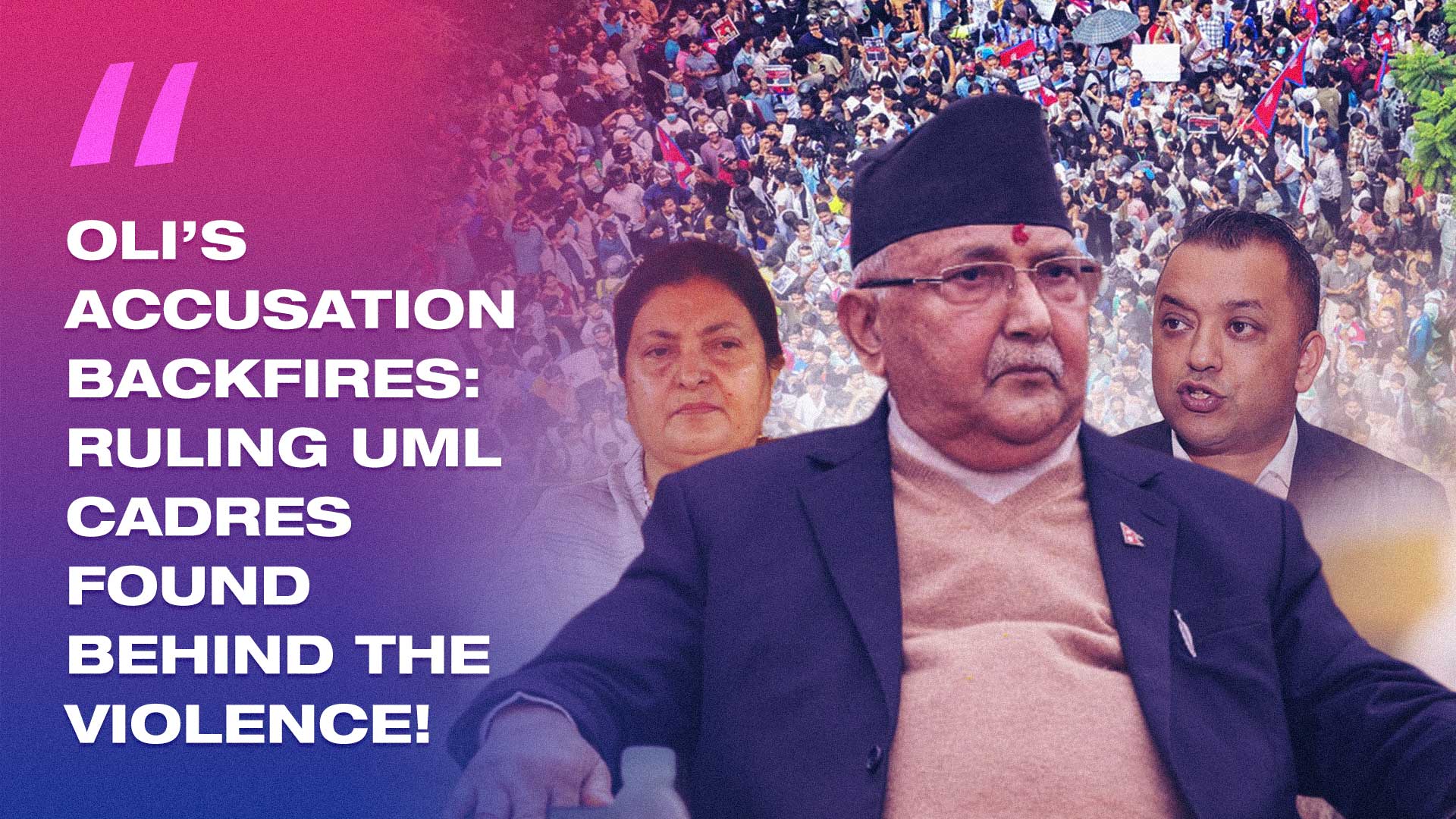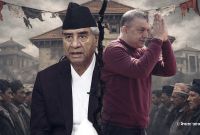From Accusation to Exposure: The Twist That Shattered KP Oli’s ‘Foreign Plot’ Theory

New evidence has emerged suggesting that cadres of Nepal’s main opposition party, the Communist Party of Nepal (Unified Marxist–Leninist) (UML), were involved in arson incidents during the recent Gen Z protest movement, despite repeated claims by former Prime Minister K.P. Sharma Oli that foreign elements were behind the unrest. The revelation has cast serious doubt on Oli’s long-standing narrative that “external forces” incited violence across Nepal.
According to information revealed during a televised interview by Nepali Congress General Secretary Gagan Thapa, individuals involved in setting fire to his residence were found to have close links with a local UML leader. Similarly, one of the participants in the attempted arson at the residence of former President Bidhya Devi Bhandari was identified as a member of UML’s youth wing.
Following these disclosures, the Sushila Karki-led government has reportedly intensified investigations into incidents of arson and vandalism that occurred during the Gen Z protests. Preliminary findings from security agencies indicate that some of those arrested in Kathmandu had political affiliations with UML. Police officials, however, have yet to release detailed findings or official statements regarding the ongoing investigation.
The revelations have fueled intense political debate in Kathmandu. Analysts note that the exposure of UML-linked involvement in the very acts of violence the party had blamed on “foreign interference” represents a major moral and political setback for Oli’s leadership. The development underscores a growing contradiction between his nationalist rhetoric and the actions of individuals within his own political sphere.
The controversy has also ignited widespread reaction on social media, where users have criticized Oli’s tendency to shift blame outward. Many have commented that the “fires burning in his own camp” have now exposed the hollowness of the foreign-involvement narrative.
Meanwhile, government sources within the ruling coalition say the findings have given new momentum to post-protest accountability measures. Investigators are now said to be examining whether any organized network within political parties sought to exploit the Gen Z movement for strategic purposes.
The emerging evidence has raised questions about Oli’s credibility and the internal discipline within his party. If proven that UML cadres deliberately fueled unrest while the leadership deflected blame abroad, it could mark one of the most serious ethical crises in Nepal’s recent political history — a test not of words, but of accountability and action in a democracy still rebuilding its moral foundation.




![From Kathmandu to the World: How Excel Students Are Winning Big [Admission Open]](https://nepalaaja.com/img/70194/medium/excel-college-info-eng-nep-2342.jpg)
